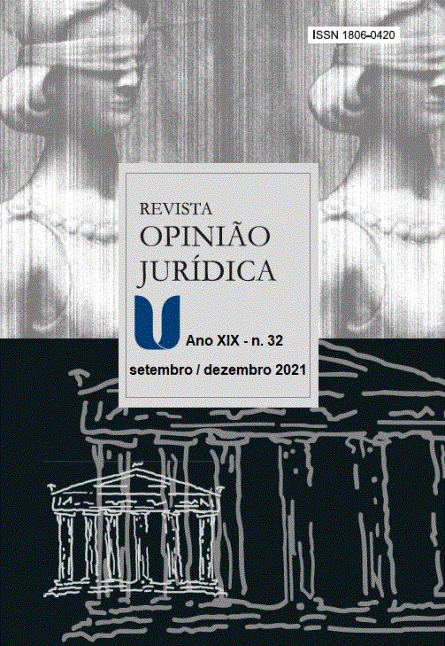HUMAN RIGHTS VIOLATIONS PERPETRATED BY STATE AGENTS IN MILITARY OCCUPATIONS: ANALYSIS OF THE INCURSION OF INTERNATIONAL HUMAN RIGHTS LAW TO THE NORMATIVE TERRITORY OF THE ARMED CONFLICTS
DOI :
https://doi.org/10.12662/2447-6641oj.v19i32.p32-57.2021Mots-clés :
International Human Rights Law, International Humanitarian Law, Military Occupations, Human Rights Violations, Legal AntinomyRésumé
Objectives: This article aims to revisit the interrelationship between International Humanitarian Law (IHL) and International Human Rights Law (IHRL), in honour of their respective normative scopes and in order to carry out an analysis of their complementary or supplementary application, towards the construction of a more appropriate tool for the protection of human beings in extreme situations, as it occurs during armed conflicts. This is because, amid the multifaceted vulnerabilities that accumulate in today's conflicts, it is essential to provide the most effective source of protection - proportional to the demands for protection that are manifested today, particularly in military occupations around the world, whose occurrence will be the focus of this research.
Methodology: As for the method of approach concerning the logical basis of the investigation, the hypothetical-deductive procedure method was selected, with a qualitative approach, and a bibliographic research and case analysis technique, insofar as the corroboration or falsification of the main hypothesis about the effective complementary and harmonious application of IHRL will be tested to cases of human rights violations in International Armed Conflicts in the military occupation modality. The exploratory aim was developed through the understanding of the Military Occupations as an ideal scenario to indicate the legal antinomies between IHRL and IHL.
Results: In this investigation, specifically utilising the Military Occupations scenario, it was concluded that the most appropriate positions for the protection of the vulnerable should be substantially grounded on IHRL fundamentals regarding the still obscure area of transition between the two areas, aiming at the consolidation of a doctrinal understanding to base new consultative opinions in the future.
Contributions: Given this framework, the core of this work lies in the understanding of the praxis for the complementary application of both aspects in armed conflicts, considering not only International Human Rights Law as lex generalis, but their effective overlap to the detriment of International Humanitarian Law, when it is most beneficial to human protection in the cases of Military Occupations.
Téléchargements
Publiée
Comment citer
Numéro
Rubrique
Licence
La soumission d'articles à l'analyse de l'équipe éditoriale de Revista Opinião Jurídica implique, par cet acte même, la cession, de la part de(s) auteur(s), à Centro Universitário Christus - UNICHRISTUS, de l'oeuvre afin de reproduction, divulgation, distribution, impression, publication et de la rendre disponible, selon les normes de publication (Norma de Publicação 414 R. Opin. Jur., Fortaleza, ano 12, n. 16, p. 1 - 414, jan./dez. 2014) à la charge de UNICHRISTUS, sous toute forme ou moyen existant ou futur, selon l'article 49 et suivants de la Loi 9.610/98.
Paragraphe premier. La cession objet de ce terme est faite à titre non exclusif et gratuit, incluant la totalité de l'oeuvre.
Paragraphe 2: UNICHRISTUS peut rendre disponible, pour des finalité didactiques, l'oeuvre complet ou en parties, des changes à son contenu étant interdites, à l'exception de corrections ou formatages nécéssaires.
Paragraphe 3: La cession est valable dans tous les pays, en langue portugaise ou version traduite, selon l'intérêt de UNICHRISTUS.
LES RESPONSABILITÉS
Au moment au l'article est soumis à la revue, le(les) auteur(s) prend(prennent) la responsabilité exclusive concernant l'intégralité du contenu de l'oeuvre. Toute mesure judiciaire ou extra-judiciaire sera, donc, la responsabilité de l'auteur.
Paragraphe unique. Au cas où plusieurs personnes sont les auteurs de l'oeuvre, leur responsabilité sera solidaire, sauf preuve contraire.






























